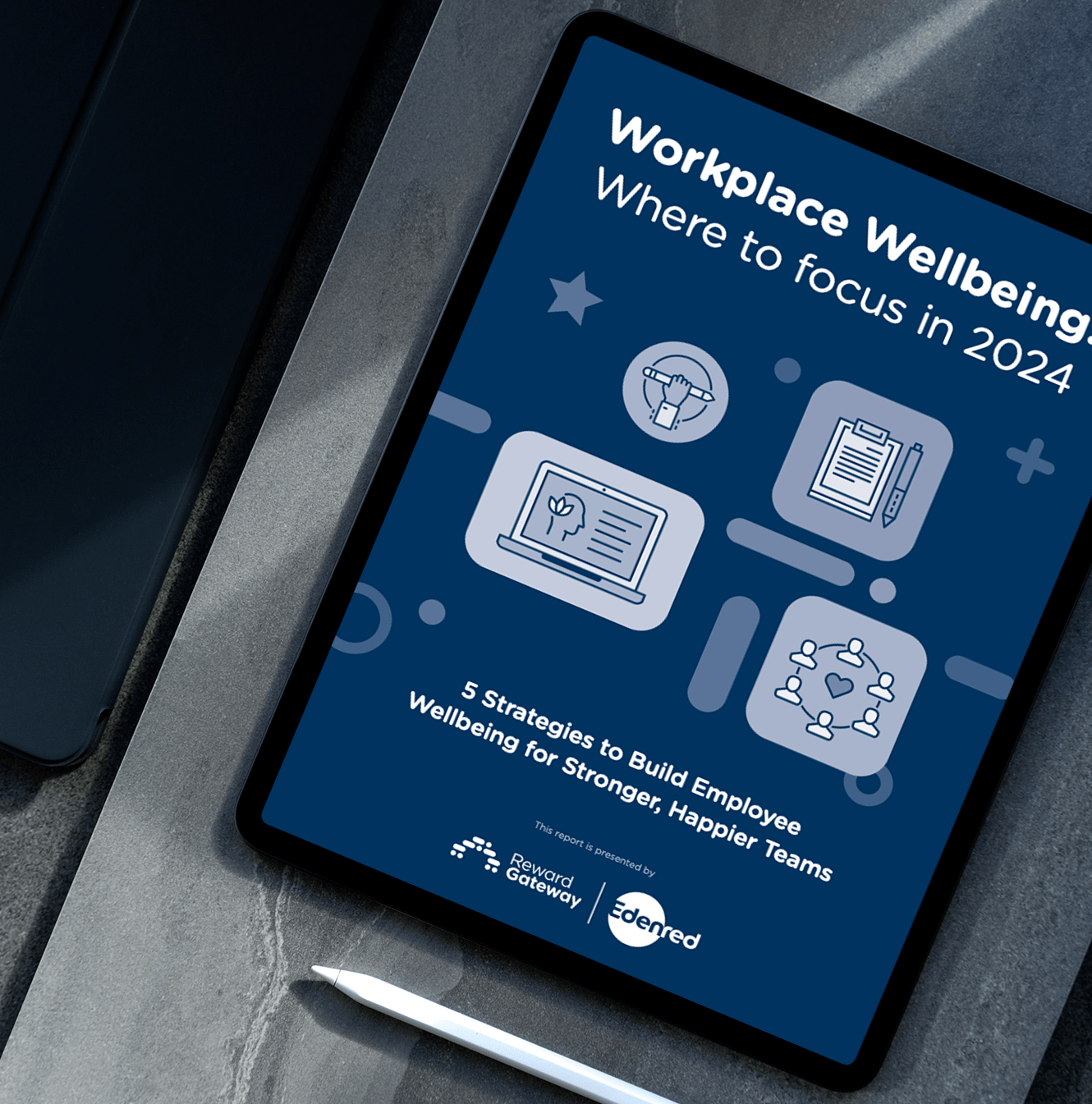What’s in a name?
While Juliet may have thought there was no true meaning behind names, we at RG politely disagree. (Sorry, Shakespeare.) We put a lot of thought and intention into the words we choose in our communications, in our product naming, in our messaging and more.
So let’s settle into a theoretical war of words and discuss the difference between wellbeing and wellness, and why we focus on wellbeing over wellness.
Defining wellness
 “Wellness” is the act of practicing habits that have a positive impact on your health. This could be regular exercise, eating nutritious meals, going for regular checkups and more. While the definition of wellness varies depending on your source, it tends to focus mostly on physical and mental health and behaviors.
“Wellness” is the act of practicing habits that have a positive impact on your health. This could be regular exercise, eating nutritious meals, going for regular checkups and more. While the definition of wellness varies depending on your source, it tends to focus mostly on physical and mental health and behaviors.
Employees’ wellness focuses are typically limited to medical insurance and other one-off programs, such as wellness fairs or fitness reimbursements.
Defining wellbeing
“Wellbeing,” on the other hand, covers a broader dimension of factors for a well-lived life: physical, mental, social, career and financial factors. Wellbeing is a more holistic approach that takes wellness into consideration, but doesn’t stop there.
An organization focused on supporting employee wellbeing will have a more holistic suite of offerings - from comprehensive medical insurance (including mental health) to ample PTO (for work-life-balance) and learning & development resources (for career development) to rewards & recognition (for social connection) … more.
Reward Gateway’s approach to wellbeing
 As work and life continue to become more blended, it’s more important than ever for companies to support their employees as whole people. A well employee is an engaged employee, and an engaged employee is more productive and likely to stay – and recommend your company to other future employees.
As work and life continue to become more blended, it’s more important than ever for companies to support their employees as whole people. A well employee is an engaged employee, and an engaged employee is more productive and likely to stay – and recommend your company to other future employees.
In our Workplace Wellbeing report, we found that, on average, 23% of any workforce is looking for a new employer now or within the next year. Why? Almost all of the top six reasons have a direct tie to wellbeing:
- 65% want more money
- 41% are overworked and underpaid
- 35% are looking for a career or role change
- 33% are burnt out
- 24% don’t feel supported by their employer
- 23% don’t think their employer cares about their wellbeing
Of course everyone wants more pay, you might say. But according to our survey respondents, an employer (44%) or a manager (43%) who cares about their wellbeing is more important than a 10% pay raise.
While offering wellness support and programs may be a good start, we encourage all companies to look at other ways they can support their employees’ holistic wellbeing. It’s one way to show your people that you value them for who they are as whole people, not just productivity engines.
Schedule a demo with one of our friendly employee engagement experts to learn how you can improve the employee experience at your organization and make your corner of the world a better place to work.

 Kristin Bassett
Kristin Bassett




